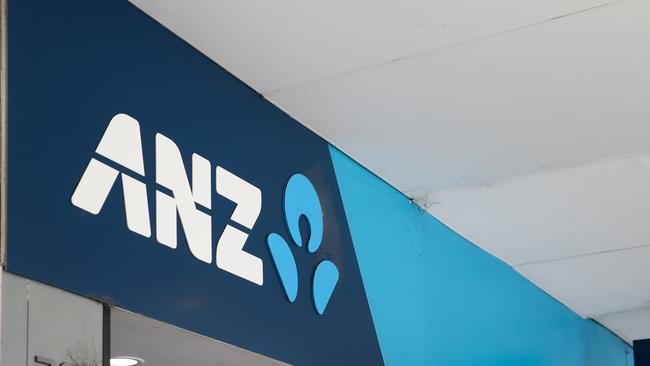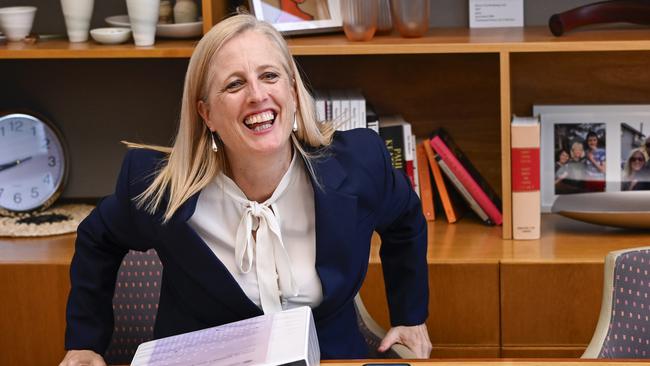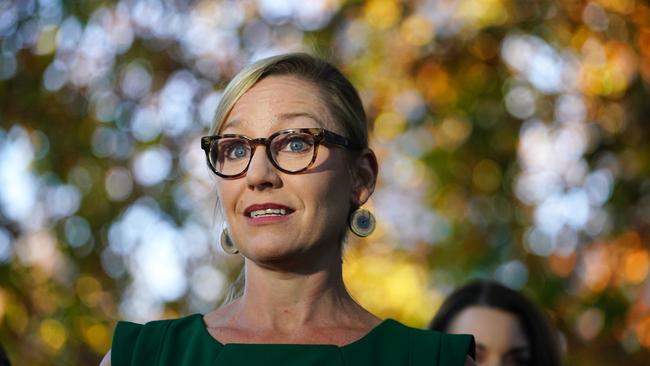ANZ sounds the alarm on RBA scammers ahead of cash rate call
ANZ has warned Aussies to watch out for scammers using the RBA cash rate decision to rip off homeowners.
A big four bank has sounded the alarm around possible scammers ahead of the Reserve Bank of Australia’s cash rate decision.
The RBA will hand down its decision on Tuesday after holding its first board meeting since the federal election.
If the central bank cuts rates – as tipped by analysts – it would be the second reduction in the cycle, after cutting in February and holding in April.
ANZ scams portfolio lead Ruth Talalla warned cybercriminals would look to key events such as the RBA rate day as an opportunity to exploit.
“Scammers take advantage of major national financial announcements like these to exploit people’s understandable desire for financial security,” she told NewsWire.

“As people may look for opportunities to refinance loans to get a lower interest rate, scammers may seize the opportunity to pose as banks or financial advisers by offering fake investment opportunities or ‘lock-in’ loan deals.”
Ms Talalla warns impersonating scams are becoming increasingly convincing, with cybercriminals tactics growing more sophisticated.
But there are ways Aussies can protect themselves.
“If something feels too good to be true, or you are feeling pressured to transfer money or share personal information, it’s important to take the necessary steps to protect yourself and call your bank directly,” Ms Talalla said.
“There are some key signs to help identify a scam, including unexpected contact, an urgent or pushy tone, and requests for sensitive information such as your password or PIN or one time passcodes.”
Minister spruiks ‘good progress’ on inflation
Anthony Albanese’s top bean counter says the Reserve Bank will consider the “good progress” made on inflation when deciding whether to cut interest rates.
Finance Minister Katy Gallagher on Tuesday morning repeated the Albanese government’s line that it was “a matter for the Reserve Bank” but acknowledged the signs were looking good.

“I know that all the markets are pricing in a cut today, and I imagine there are a lot of homeowners all around Australia waiting on that decision at 2.30 this afternoon,” Senator Gallagher told Nine’s Today.
“I mean, the thing for us … has been to try and make sure that we dealt with the inflation challenge.
“We’ve made such good progress over that in the last two years and we’ve got inflation back down and that really … is what the Reserve Bank will be looking at when they make their decision today.”
Inflation data released late last month showed the all-important trimmed mean inflation – which strips out volatile assets and is the preferred RBA measure – came in at 2.9 per cent for the March quarter, down from 3.3 per cent in the December quarter.
It was the lowest annual inflation rate since December 2021 and fell back within the RBA’s 2 to 3 per cent target range.
In the same quarter in 2023, it was 6.6 per cent.
But the headline inflation rate – which includes volatile assets such as energy costs — came in at 2.4 per cent, which, while in line with December’s figures, was slightly higher than markets expected.
The main contributors to headline inflation were housing, up 1.7 per cent, education, up 5.2 per cent, and food and non-alcoholic beverages, which grew 1.2 per cent.
Newly elected Greens leader Larissa Waters has also called on Jim Chalmers to “use a little-known power” to force the Reserve Bank to lower interest rates, saying Australian have been “hurting for far too long”.

The Greens have long called on the Treasurer to intervene in the RBA’s decisions despite the bank being independent of government.
Senator Waters told Today that her party would also “like to see the banks actually mandated to offer people a low-rate mortgage”.
“I think you’ll find a lot of the pain people are in is translating to bank profits and that’s not fair in a cost-of-living crisis,” she said.
“So, there’s a lot more that could be done. And, of course, building homes, getting on with that, incentivising both private and government-owned builds so that we can actually supply the homes that people need.
“Everyone should be able to have a roof over their head in this wealthy nation.”
Simple trick to save mortgage holders $90k
Mortgage holders who can afford to keep up with their repayments will be significantly better off over the long term if they can resist the lure of an interest-rate cut.
According to research by Canstar, the average Australian borrower with a $600,000 mortgage and 25 years remaining on their debt could save $89,143 in interest payments simply by keeping their repayments at the same amount they were paying in February.
The data is based on four interest rate cuts, expected in February, May, August and November.

Canstar insights director Sally Tindall said the vast majority of Australians were maintaining their existing payments despite a 0.25 per cent rate cut being passed on in full by the banks in February.
“This just illustrates how determined Australians are to get ahead financially, particularly when it relates to their mortgage,” she said.
“Not only will paying extra in your mortgage give you a bigger buffer to fall back on, it also has the potential to release you from the shackles of the mortgage months, if not years, early.”
Not only would the average mortgage holder save thousands in interest, the data shows they would own their house in 21 years instead of 25.
At the time of writing, the money market had factored in a near 95 per cent chance of a rate cut when the central bank announces its cash rate decision at 2.30pm on Tuesday.

The Commonwealth Bank confirmed the majority of their customers hadn’t changed their repayments despite the February rate cut to 4.10 per cent.
Commonwealth Bank’s home buying executive general manager, Michael Baumann, said following February’s rate cut about 14 per cent of eligible customers took the opportunity to reduce their direct debit to align with the lower minimum repayment – thereby freeing up cashflow.
“For those who did not reduce their direct debit repayments, they may now be making additional repayments on their mortgage, which could help them to pay off their loan faster,” Dr Baumann said.
“These additional payments will also increase the available balance of their loan accounts and customers may have the flexibility to redraw the available balance at any time, for example if they experience an unexpected cost.”
February marked the Reserve Bank’s first rate cut since November 2020, at the height of the Covid-19 pandemic.



To join the conversation, please log in. Don't have an account? Register
Join the conversation, you are commenting as Logout